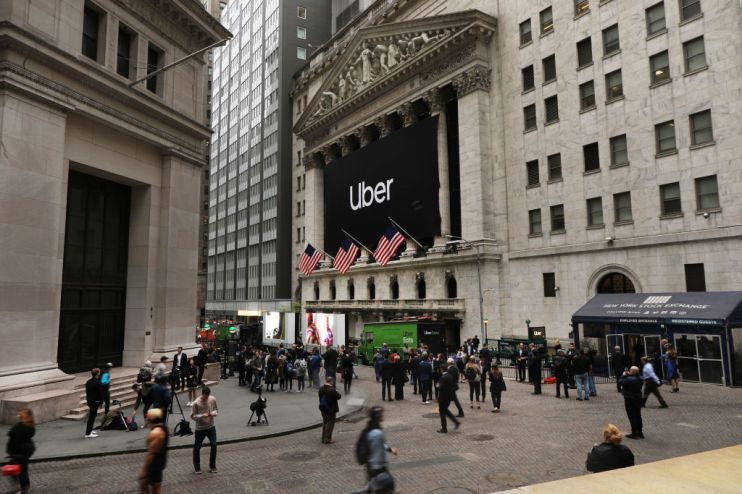Uber shares slip after London licence loss

Uber’s share price has slipped after falling close to a record-low in pre-market trading in response to the app’s loss of its London licence.
Shares in the New York-listed company were down three per cent to $28.66 in pre-market trading, wiping almost $2bn off Uber’s market cap.
However, shares trimmed losses to stand 1.4 per cent down at $29.14 at 4.15pm.
Read more: TfL bans Uber from London after ‘pattern of failures’
Read more: Uber ban: London business groups mourn ‘dark day’
The initial fall came on the back of a Transport for London (TfL) decision to not grant Uber a new licence after a “pattern of failures” put passenger safety at risk.
Uber’s UK general manager Jamie Heywood said the decision was “extraordinary and wrong”, and that the company would launch an appeal.
It will continue to operate throughout the appeal proceedings.
Neil Wilson, chief market analyst for Markets.com, originally predicted a “rocky session” today for the tech giant.
“There is a clear and obvious hit to revenues, if the ruling is upheld, which it seems likely it will.” he said.
“Competition in the shape of Bolt and Ola are ready and willing to step in at the drop of a hat in the capital and it could be forgotten pretty quickly once gone.”
He added that regulatory problems could spell long-term trouble for Uber’s stock price.
“The list of legal issues is long and broad in its scope and geography,” he said.
“These present ongoing overhang for the stock as, whilst there have been problems about corporate culture, largely the run-ins with the regulators and policymakers pertains to the very structure of the business itself and how it operates.”
TfL made the decision this morning, after it found unlicensed and uninsured drivers were using the platform by uploading photos to other peoples’ accounts.
The transport body estimated 14,000 trips had been picked up by these drivers.
Read more: Uber rivals sharpen their knives after app’s London licence loss
It was also found that a number of drivers were able to access the platform, despite being previously banned by Uber.
Heywood said: “We have fundamentally changed our business over the last two years and are setting the standard on safety.”